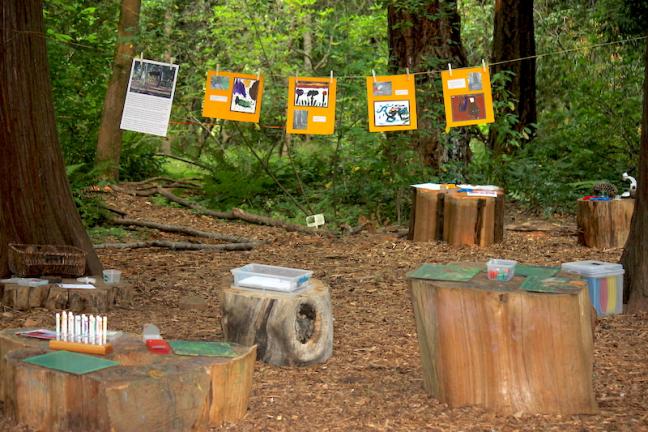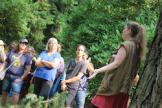More and more early childhood educators recognize the many ways in which nature boosts children's learning and development. Whether you work in a traditional school or child care center, a forest classroom, or a nature center, these resources will help you to facilitate engaging, safe, effective, and inclusive nature experiences with your students.

Understand the Characteristics of High-Quality Programs

If you're new to the field, start here. This free resource was developed with the input of thousands of professionals, and will help you to design programs that reflect exemplary practice. The guidelines provide direction yet offer flexibility in shaping the content and techniques used in your program, including:
- developing a program philosophy
- offering developmentally-appropriate content
- designing safe and effective spaces for play and learning
- preparing educators, and more.
In addition to the Guidelines for Excellence, eePRO (NAAEE's hub for professional development) provides suggestions for several other resources that will inspire and guide you in planning effective nature-based programs for young children.
Start Small or Plan Something Big

If you are a public school educator, you will likely find this article on the experience of kindergarten and early elementary teachers in New England extremely valuable. Do you need to make the case for taking children outside to your administration? This independent program evaluation report documents several benefits of "nature days" in public schools, including increased mastery of academic content, enhanced student enthusiasm for school, and fewer discipline or behavior issues.
If you work at a nature center, zoo, or other environmental education facility, you may not have the space, personnel, or financial means to run a daily early learning program. But you could still plan short-form programming such as nature playdates - and this article will walk you through the key decisions you will have to make. You can also download this free Guide to Early Childhood for Environmental Educators, which will help you to plan and run developmentally appropriate programs at your nature facility.
But perhaps you are ready to jump in with both feet and plan your own nature preschool or forest kindergarten program! This article on program considerations for establishing a nature preschool asks central questions regarding program philosophy, building and site issues, personnel, and more. An accompanying article shares what it takes to develop a business plan for a nature preschool program.
Meet, Ask Questions, and Learn From Others

Here are some easy ways to connect with others in the field:
- Use our membership map to find organizations near you that support nature-based early learning. If they run programs that interest you, consider asking if you can observe them.
- Attend our annual nature-based early learning conference, which brings together educators, researchers, and other professionals from across the U.S., Canada, and beyond.
- Look for other professional development events - ranging from one-day workshops to weeklong trainings - and vetted by Natural Start Alliance staff.
- Join the Natural Start Alliance and use our member Google Group to ask specific questions about licensing, risk management policies, teacher recruitment and continuing education, and any other topics you're curious about.
These resources barely scratch the surface of the growing number of quality books, events, and other resources for educators who want to bring the joy and wonder of nature into young children's education. Not finding what you're looking for? Contact us anytime and we'll gladly try to point you into the right direction!

